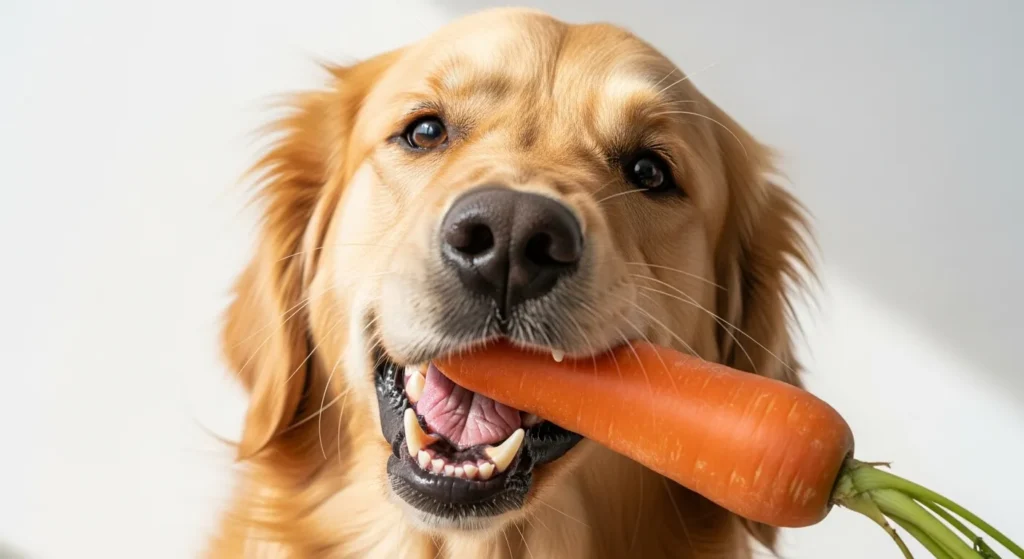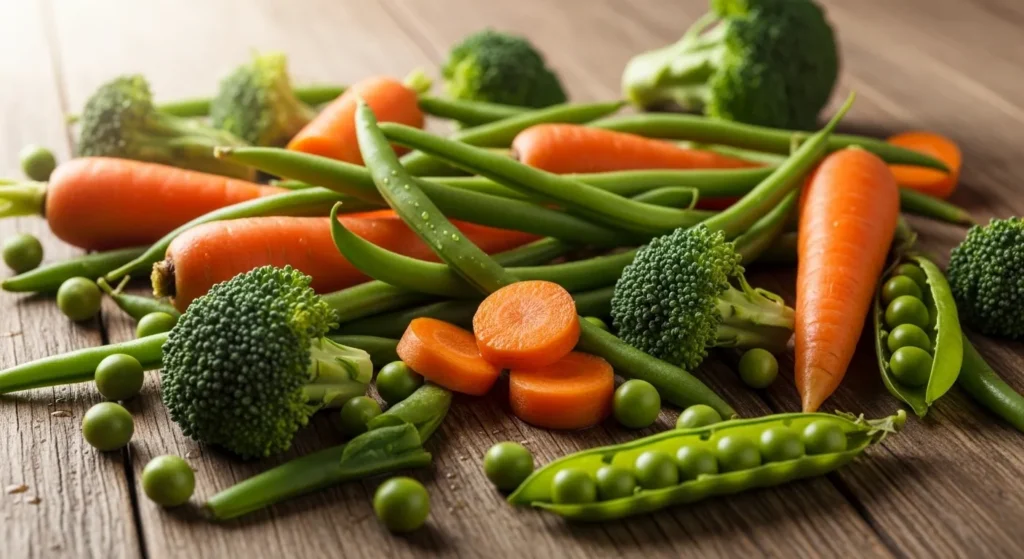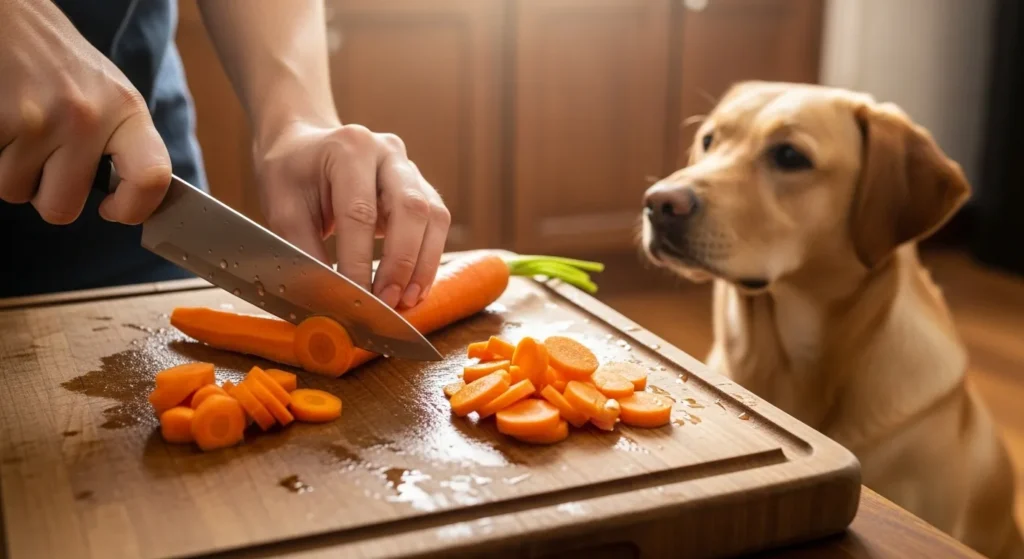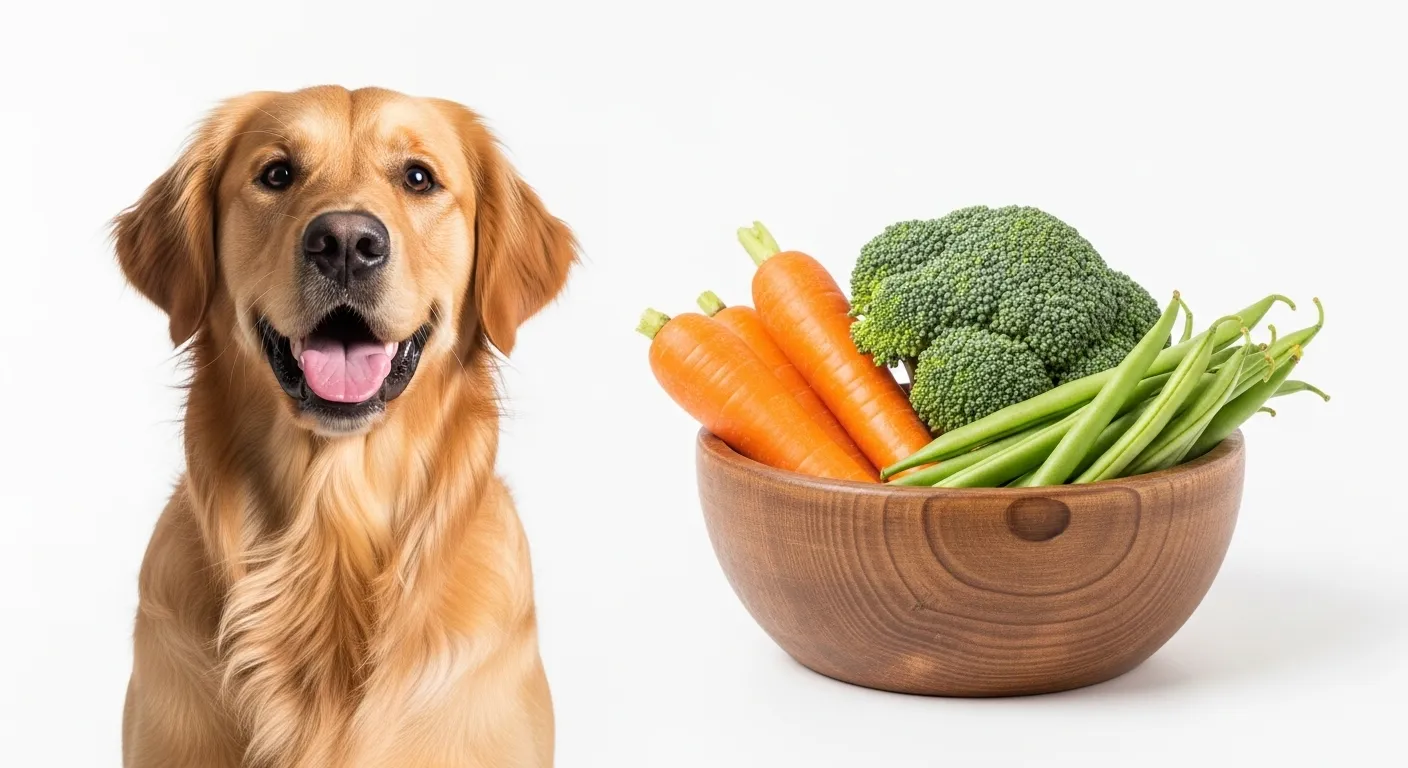Many dog owners want to share healthy snacks with their pets. Vegetables can be good treats. They add vitamins and fiber to a dog’s diet. But not all are safe. This guide lists safe and unsafe options. It helps you pick the right ones. Always check with your vet first.
Benefits of Vegetables in a Dog’s Diet
Dogs eat meat as their main food. But vegetables offer extra help. They provide fiber for better digestion. Some aid weight control with low calories. Others give vitamins for strong bones and skin. Potassium in many supports heart health. Use them as treats. Keep them to 10% of daily calories.
Safe Vegetables for Dogs
These vegetables work well for most dogs. Feed in small amounts. Watch for upset stomach.
Carrots
Carrots are crunchy and low in calories. They clean teeth when raw. Full of vitamin A for eyes. Cut into sticks. Or steam them soft.
- Portion tip: One or two small pieces per day for small dogs.

Link to our pet food safety checker to confirm other snacks.
Green Beans
Green beans have iron and vitamin K. They fill dogs up without extra weight. Use fresh or frozen. Avoid canned with salt.
- Preparation: Chop and steam.
Broccoli
Broccoli gives vitamin C. It boosts the immune system. Stems can choke, so cut small. Cook to ease digestion. Limit to avoid gas.
See our post on can dogs eat broccoli.
Sweet Potatoes
Sweet potatoes offer beta-carotene. Good for skin. Always cook them. Bake or boil plain.
- Portion tip: A few tablespoons mashed for medium dogs.
Peas
Peas add protein and zinc. Snow or snap peas work best. Fresh or frozen only. Good for coat health.
Pumpkin
Pumpkin helps with loose stools or hard ones. Use plain canned. Not pie mix. Seeds are safe too if plain.
- Benefit: Calms tummy issues.
Check our pet symptom checker if your dog has belly problems.
Celery
Celery freshens breath. It has water for hydration. Low calories for chubby dogs. Cut into small bits.
Zucchini
Zucchini is mild and easy to digest. High in water. Steam or raw slices.
Brussels Sprouts
These have antioxidants. They fight cell damage. Cook to soften. Small dogs get one or two.
Cauliflower
Cauliflower provides folate. Steam florets. Avoid raw to prevent bloat.
Spinach and Kale
Both are nutrient-rich. Iron for energy. Oxalates mean small servings only. Steam leaves.
Beets
Beets support liver health. Cook to soften. May turn pee pink, but harmless.
Cucumbers
Cucumbers hydrate dogs. Low calories. Slice thin for treats.
Bell Peppers
Red or green peppers add vitamin C. Remove seeds. Steam for softness.
Cabbage
Cabbage aids digestion. Feed cooked in tiny amounts. Raw can cause gas.
Lettuce
Lettuce is mostly water. Safe but not very nutritious. Chop leaves.
Potatoes
White potatoes need cooking. No raw. Plain baked ones work.
For more on dog foods, read what fruits can dogs eat.

Vegetables Dogs Should Avoid
Some vegetables harm dogs. Keep them away.
- Onions, Garlic, Leeks, Chives: These damage red blood cells. Cause anemia. Even small bits are bad.
- Mushrooms: Store ones might be okay. Wild ones poison. Better skip all.
- Raw Potatoes: Have solanine. Toxic. Cooked plain are fine.
- Unripe Tomatoes or Plants: Solanine again. Ripe fruit is safe.
- Corn on the Cob: Kernels okay. Cob blocks intestines.
- Asparagus: Not toxic. But tough and low value. Skip it.
If your dog eats these, call a vet fast. Visit ASPCA’s site for poison info.
How to Prepare Vegetables for Dogs
Wash all produce. Cut into bite sizes. No salt or oils. Steam or boil most for easy chewing. Raw works for crunchy ones like carrots. Start slow with new foods. Mix into meals. Freeze slices for cool treats in summer.
Use our pet age calculator to adjust portions by age.

Common Questions About Vegetables for Dogs
Can Dogs Eat Broccoli Stems?
Yes. But chop small. Cook to soften.
Are Carrots Good for Dog Teeth?
Yes. Raw ones scrub plaque.
Can Dogs Have Cooked Onions?
No. All forms are toxic.
What About Frozen Vegetables?
Yes. Plain frozen are safe. Thaw first.
Do Dogs Need Vegetables Every Day?
No. They are treats. Meat is main.
For breed-specific tips, try our pet breed finder quiz.
Final Tips for Feeding Vegetables
Pick fresh produce. Watch your dog’s reaction. Puppies and old dogs may need softer food. Vegetables add variety. They keep tails wagging. Pair with balanced meals. Your dog stays healthy this way.
Link to can dogs eat mushrooms for more details.
